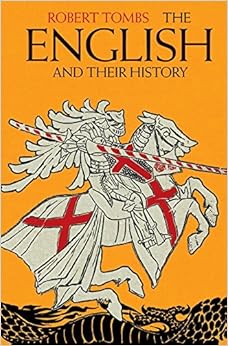I was recently asked to speak at the Redbridge Rotary Meeting. Rotary have a strict policy that speeches are not to be party political and I was asked to talk about key dates and developments in English history which caused the political constitution in England to develop in the unique way that it did and thereby led to many of the key developments which brought the modern world into existence.
Here are the key points that I referred to in my speech:-
Ladies and Gentlemen of Redbridge Rotary many thanks for inviting me to speak to you today.
A few months ago I happened to meet and get talking to your colleague, Tony Betts, about the uniqueness of English history. He said that he thought you would be interested. So thank you Tony for my invitation here today to talk about English history and how our unique constitution developed.
As G K Chesterton said “What can they of England know who only England know” and so I do find that sometimes people who haven’t travelled much say that there is no difference about England and it has no culture.
The thing is Ladies and Gentlemen that in English schools now, English history is barely taught and certainly not taught in a way which allows our school children to understand how our constitution developed as a result of events in our history.
Let me tell you what I think is a symptomatic story. My daughter is interested in history and when she was doing her GCSE’s I happened to ask what she had been studying. She said history. So I asked what about. She said Hitler. So I said oh that’s interesting so who was the greatest mass murder in human history? She immediately said Hitler. So I said no Mao Tso Tung – 95 million. She looked a bit crestfallen so I said so who is the second greatest mass murderer in human history? She said Hitler again a bit hesitantly. So I said no Joe Stalin – 55 million. I then asked who was the third greatest mass murderer in human history? She was very hesitant by now and asked me was it Hitler so I said yes.
Although this story is not about English history it does show both the bias which our children are subjected which edit out historic truths that are inconvenient to the Left and also that there is no teaching of any understanding of how things fit together.
So what I propose to do is to concentrate on how English history fits together and focus on the key dates in the development of that unique entity called:- “the English Nation” and its Nation State: “England”.
To illustrate how unique England is I would point out that one historian called England “God’s first borne of the Nation states of the Earth”.
So here goes Ladies and Gentlemen.
412 Legions depart
End of Roman Britain
The rise of the Heptarchy – settlement/conquer by Angles, Jutes and Saxons
664 Synod of Witby – Culmination of the Roman Catholic mission founded by StAugustine
731 Venerable Bede – Book:- Historica Ecclesiastica Gentis Anglorum
793 Viking’s first raid
20.11.869 Martyrdom of St Edmund – Patron Saint of English as a people
878 Alfred the Great burns cakes. Alfred wins a first great victory against the Vikings at Eddington
His Military reforms
880’s His publication of English Bible
886 His creation of London as a burgh
890 His promulgation of his law code in English
12.7.927 King Athelstan – English unity – at Eamont
1066 Edward the Confessor (Patron Saint of English Monarchy)
William the Conqueror calls himself: “Basileus”.
1189 “Time Immemorial” “Basileus” (Death of Henry II) Customary law basis of Common Law (a unique English contribution).
1215 Magna Carta – the King uniquely subjected to the Rule of Law
Re-promulgated as manifesto by William Marshall and Henry III
1222 St George’s Day 23rd April adopted (Patron Saint of England)
1265 First British Parliament in Westminster Abbey Chapter House. We can see the spot on Westminster Abbey wall where Henry III ran out of money!
Edward I uses Parliament to raise more tax for his wars
1333 Battle of Halidon Hill. First of three great victories of Edward III. Berwick on Tweed finally settled in England.
1461 Towton etc. – Slaughter of much of medieval nobility
1485 Bosworth – Wars of the Roses ends
1517 Martin Luther posts 95 theses on church door in Wittenberg
1535 Reformation – Tudor Monarchy apparently very dominant but parliament is the mechanism by which even the religion of England is ordered to be changed (and later back and forth).
1535 Official Bible printed in English
1536 Act of Union with Wales
1603 Scottish King inherits English Crown. James I of England 6th of Scotland tries to get English Parliament to agree to United Kingdom and fails
1642 Civil War
1649 Charles beheaded
England declared a Republic and Commonwealth
1689 Glorious Revolution – Bill of Rights
Crown in Parliament is Sovereign. Keystone of legislative constitution as set out in Miller (Brexit) case by LCJ. NB. Not the sovereignty of the People!
1707 Union of Parliament – Scotland
1721 Emergence of Prime Ministerial government
England uniquely was the first Industrial Revolution
1801 Union – Ireland – Union Jack complete
1832 Great Reform Act – Parliament begins to increase the rate of legislation
1922 Ireland – Irish Free State – Irish citizens can move here freely and vote here as citizens
1937 Republic of Ireland created
1945 Post war phenomenon of two party rule.
1998 Devolution of Scotland, Wales and Northern Ireland but uniquely nothing for England except now EVEL e.g. Hunting Act for England only – SNP blocked it.
What do you think? Is English constitutional history more unique than you thought?



